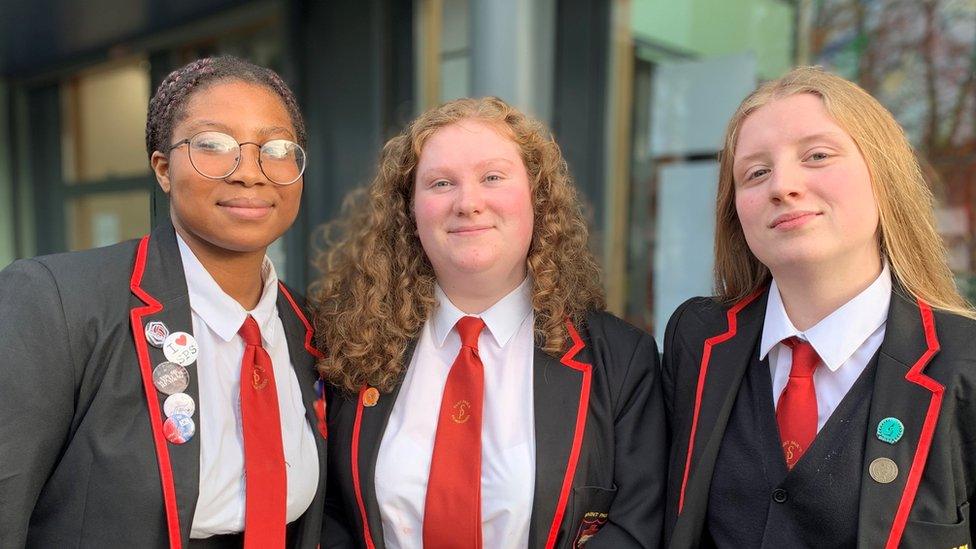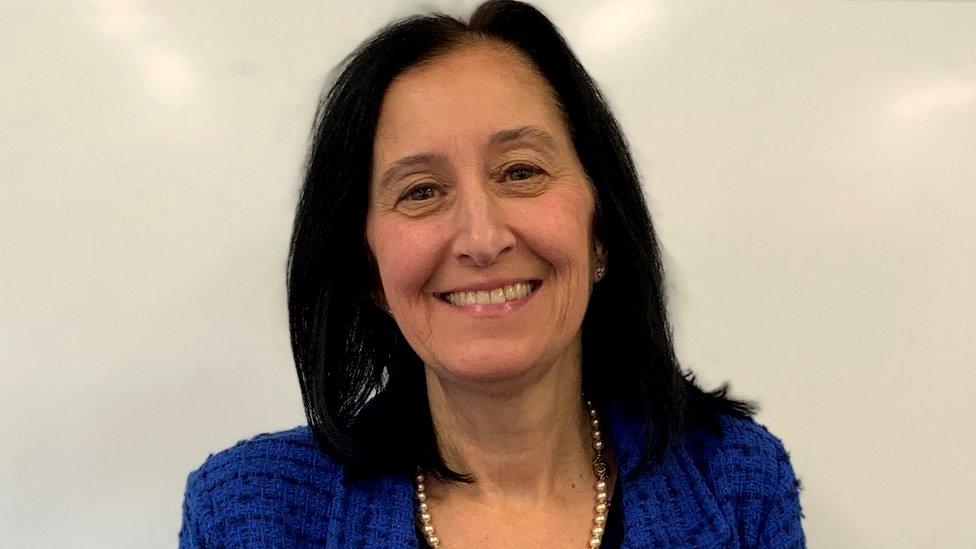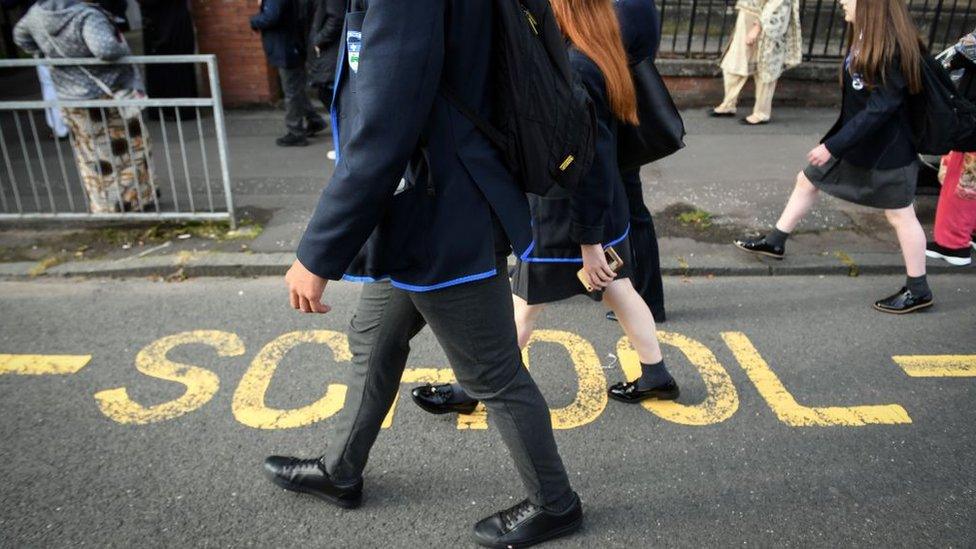School absence pupils to be helped rather then punished
- Published

Marlene Asare, Niamh Fotheringham and Emma McDougall know fellow pupils who have struggled with anxiety
Children missing from school for long periods will be supported instead of being punished under a new pilot programme in Glasgow.
Overall school attendance has dropped across Scotland since the disruption of the Covid pandemic.
Under the new scheme, psychologists and community workers will visit homes to help pupils overcome anxiety, stress and mental health issues.
The project is being launched across all of Glasgow's schools next week.
The 12-month pilot will initially target children who attend school less than 60% of the time and is expected to work one-on-one with at least 250 pupils from secondary and primary schools.
The scheme, called REACH, is being run jointly by Glasgow City Council and the charity Quarriers.
The Scottish government said it was providing local authorities with funding to help with poor wellbeing and mental health.
Glasgow City Council's principal educational psychologist, Barry Syme, said the aim was to intervene early to support young people and help divert them from the adult mental health system and much worse outcomes and more expensive interventions.
'Emotionally based school non-attendance'
He said: "Instead of looking at it as a problem and punishing families for non-attendance, we looked at the underlying reasons for that."
Mr Syme said the term "emotionally based school non-attendance" was used to describe when a child feels unable to attend school because of stress or other wellbeing barriers.
He added: "Covid prevented a lot of young people experiencing opportunities because they were at home and that is going to be a real challenge and we probably haven't seen what the impact of that has been."
Colin Simpson, service co-ordinator for schools services with Quarriers, told BBC Scotland: "What is different about this service is that we are able to go into schools and spend time with them and their families in the home to overcome some of these anxieties and mental health challenges by providing a supportive relationship in the home."

Head teacher Lisa Pierotti said some children lacked confidence and resilience
St Paul's Roman Catholic school in the Pollok area of Glasgow will be involved in the pilot.
Head teacher Lisa Pierotti said the project was part of a range of strategies in place to support young people who had found it very difficult post-Covid to settle back into some kind of normality in school.
She said there were a number of reasons why children were not attending.
"It's a lack of confidence and a bit of a lack of resilience for some young people," she said.
"They need lots of support and that's what schools are here to offer along with working with families in partnership."

Robert Smith attends regularly but understands why other pupils might find it difficult
Robert Smith, 17, is a pupil at the school.
He attends regularly but understands why other pupils might find it difficult.
"A reason people might not come to school is because there might be family issues, so there's not someone in the house pushing them to go to school," he said.
"And if you don't have someone behind you encouraging you to go, as a teenager you're not going to go because there's no repercussions, there's no-one moaning at you if you don't go."
Emma McDougall, 17, said: "It's not only exam pressures that people felt when they came back from Covid it was also social pressures like they felt anxious to talk to new people because they were away from people for so long it caused even more anxiety."
'Big struggle'
Marlene Asare, 17, loves school but said it can make others anxious.
"For one of my friends it was a big struggle for them to come to school," she said.
"They said they always felt anxiety and nervous - you know that feeling that everyone is looking at you but they're not."
Education Secretary Shirley-Anne Somerville said: "Poor wellbeing and motivation can be some of the underlying causes that can have an impact on attendance and learning."
"It is important that school should also work with families to support and engage pupils in attendance at school," she said.
Related topics
- Published30 September 2022

- Published1 September 2020
